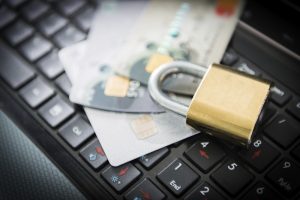 All global researches and surveys show that all kind of fraud, like procurement fraud, is rising and empowered by new dimensions in matter of vulnerabilities and attack methods. From traditional check tampering and skimming methods to cyber crime attacks, fraudsters become more sophisticated, with a powerful arsenal of technology in their hands, white collar executives or just generation Y/Z youngsters, able to collaborate from distance even if they do not know each other and capable to perform orchestrated attacks either with the help of an insider or not.
All global researches and surveys show that all kind of fraud, like procurement fraud, is rising and empowered by new dimensions in matter of vulnerabilities and attack methods. From traditional check tampering and skimming methods to cyber crime attacks, fraudsters become more sophisticated, with a powerful arsenal of technology in their hands, white collar executives or just generation Y/Z youngsters, able to collaborate from distance even if they do not know each other and capable to perform orchestrated attacks either with the help of an insider or not.
Kroll Global Fraud Report 2015-2016 carried out by the Economist Intelligence Unit shows that vendor, supplier or procurement fraud is the second more frequent type of fraud (e.g. Globally 17%, Canada 23%, US 19%, Europe 18%). At the same time executives believe that their organizations have become more vulnerable to fraud in the past year. The 49% of the companies surveyed described themselves as highly or moderately vulnerable to procurement fraud.
Common drivers to fraud exposure
Although that per industry there are slightly differences in fraud incidents frequency, e.g.
- Retail wholesale and distribution 27%
- Construction engineering and infrastructure 24%
- Natural resources & manufacturing 23%
- Transportation, leisure and tourism 20%
- Consumer goods 19%
- Technology, media and telecoms 18% ,
the drivers that contribute the most to their increased fraud exposure have many similarities:
- Increased collaboration between vendors and suppliers (joint ventures, partnerships).
- High staff turnover.
- Increases outsourcing and offshoring.
- Complexity of products and services sold.
The above drivers reveal the need for new tactics towards procurement fraud. Collusion between vendor’s and suppliers and/or insiders, shell companies, personal purchases, non-accomplish vendors, receivables write-off schemes and lapping schemes, ghost employees and many other fraud typologies, provide a solid playground for fraud and unfortunately most of the cards are in fraudsters hands.
More than an Internal Audit department is needed
Organization’s should not be settled or relieved cause they already have an Internal Audit department that together with many other responsibilities and priorities tries to tackle procurement fraud. Yes, Internal Audit departments play a crucial role in tackling fraud, but this is not enough. Global surveys show that such departments exist in every organization, but the global fraud case not just remains, but gets stronger every year. A recent survey by KPMG shows that the job of auditors becomes more and more challenging. The time required to carry on tasks has increased radically, the job becomes more difficult and complicated, and there is a lack of resources, time and expertise. Internal controls and policies are most of the times well known by insiders (but also from externals) who have all the necessary information in their hands to work around them.
A second line of defense: advanced analytics and cyber forensics
Organization’s need a second line of defense and advanced data analytics and cyber forensics play the cru cial role of your anti-fraud strategy.
cial role of your anti-fraud strategy.
Translating your procurement data, your billing and payment data, your payroll data, to electronic evidence for suspicious or proven fraudulent transactions, may serve many purposes from risk management, fraud investigation, criminal prosecution or disciplinary actions.
Master files from Human resources, from suppliers, purchase orders, invoices and payment transactional data, external sources for vendors/suppliers, user access data, geocoding, maps and many other data areas can be utilized.
Fraudsters know that you are dealing with big amounts of data and that few people are looking in few only details. What you have to do? Embrace the new Data Science Era with Advanced Analytics and scan fast and automatically every data element and every transaction. Starting from data management and data quality and going far beyond to machine learning and social network analytics, you can reveal anomalies e.g. in payment transactions or unforeseen relations between involved external and internal parties or contract bid rigging or data behavioral anomalies that can reveal a high risk of an upcoming fraud to happen.
Deepen your knowledge about procurement fraud
Don’t miss to read the free whitepaper “How to Detect & Prevent Procurement Fraud: The Case for a Hybrid Analytical Approach” for more insights on an hybrid analytical approach for combating procurement fraud.
Also for more updates from SAS fraud experts from all over EMEA, don’t miss to subscribe to our twitter list here

3 Comments
Dear Mr. Stavrinoudakis,
I got a quite detailed look at your article and what I’ve noticed is that you would come to your audience with several fresh ideas.
First, I would like your suggestion that our new generations being called Y/Z would deal with each other without even knowing each other. I would just try to imagine how our planet would look like in 20 or 30 years ahead, because then those young people would get in a position to lead the entire human society. With that your idea – you would open many new questions suggesting us that we should pay more attention to those young people being our future.
I would want to mention one more thing that got concerning and that’s the economical impact of fraud at the global scale. We would see that the fraud – in general – would cost the entire world a lot and with its portion of almost 20% at the international level – I just could imagine how much it may affect the global GDP which is around 60 trillion dollars.
At the end, investing in a financial security as well as a cyber defense as the area which may offer us the clues of the crime could be one of the global challenges to the future.
Thank you so much for this great contribution and I hope we would get in touch.
Kind regards,
Milica
Could you please edit my previous comment? The global GDP is nearly US$ 60 trillion, not only US$ 3 trillion. That's only 5% going to a global corruption. Thank you! 🙂
Thank you Milica for your comments !
For sure we have to pay much attention and care to those young people being our future, and in parallel we have to invest to financial security and cyber security in order to tackle crime and fraud that spreads around us.
My best regards,
Stavros Stavrinoudakis